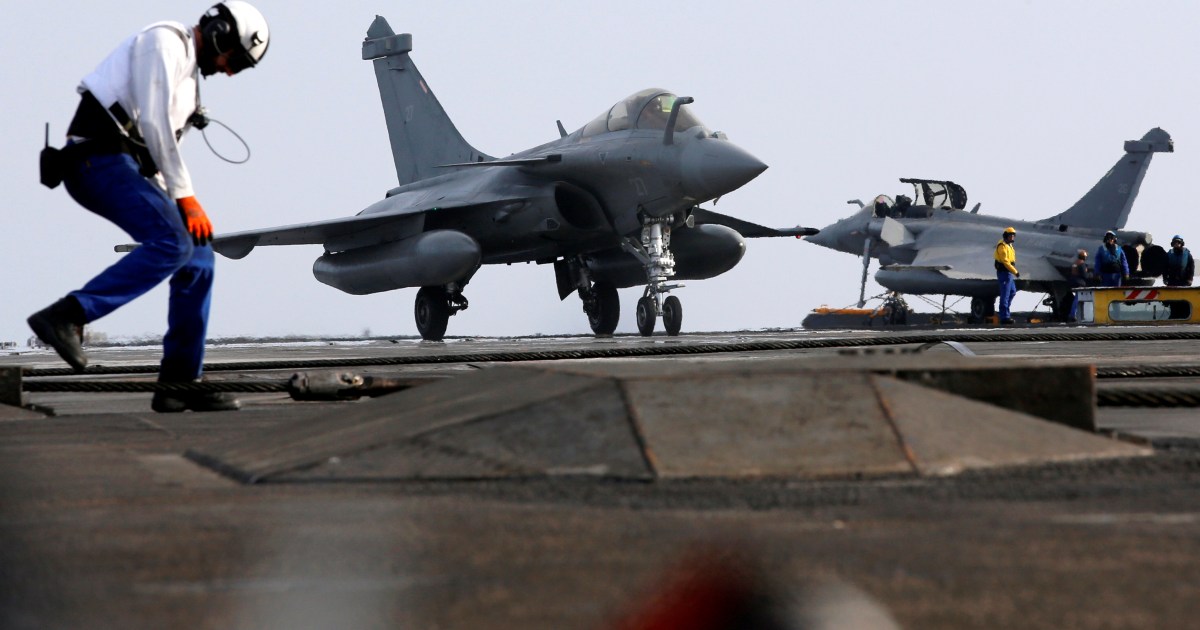After the failure of the retired Libyan Major General Khalifa Haftar’s attack on the capital, Tripoli, and the internationally recognized national reconciliation government’s control of the situation with the help of Turkey, the scene is ripe for new peace talks from different angles.
Despite this, France insists on adopting a unilateral approach that cancels its competitors and makes it the dominant mediating force in Libya, as it is now seeking to undermine Turkey's role, ignoring the urgent need to unite the various international parties to resolve the Libyan conflict.
With this introduction, the journalist, Jonathan Fenton Harvey, started an article for him in the Middle East Eye under the title "The Libyan Crisis… How Does France Thwart Peace?", In which he highlighted the contradiction that characterizes Paris's position on the Libyan issue and its endeavor to serve its interests Narrow economic and security security, albeit at the expense of achieving peace in the war-torn country.
Stark contrast
The article pointed out that France's withdrawal from the North Atlantic Treaty Organization (NATO) team involved in maritime inspections in the eastern Mediterranean region in implementation of the international arms embargo imposed on Libya early this month, highlighted the clear hostility of Turkey, which thwarted its geopolitical interests in the region.
At the same time, France is keen to present itself as a neutral diplomatic player in Libya, and has renewed its recent invitation to various parties in Libya to return to the negotiating table in a joint statement issued with both Italy and Germany.
The writer says that during the 2018 Paris summit aimed at reaching a political solution to the Libyan crisis, Libyan and international parties expressed their fear that France is seeking to replace the United Nations efforts to direct peace talks in the interests of its own interests, and the International Crisis Group indicated in a statement to "A number of Libyan parties were invited to attend the margin, but were not required to sign the agreement," noting that Paris is trying to choose its favorite players in the Libyan scene and exclude the other parties.
Paris' aspirations
The writer pointed out that France's desire to establish itself as an influential force in foreign policy is not new, as political analysts believe that one of the motives of former French President Nicolas Sarkozy to support the 2011 revolution against Muammar Gaddafi was his efforts to restore France's role as a dominant European military power.
After Libya descended into civil war and instability, France continued to focus on solutions that serve its own economic and security interests, and began courting Haftar, who saw it as an important partner that could provide guarantees against the control of extremism and secure its economic interests, including oil exploration and production by Total. French, according to the article.
Paris has provided the warlord's forces with Haftar with military equipment and training, and his militias have been seen using French missiles during his military attack on Tripoli that began in April 2019.
Undermining peace efforts
The writer believes that France's position suffers from a lot of contradiction, as it announced its support for the peace path and dealt with the government of national reconciliation and its Prime Minister Fayez al-Sarraj, unlike some other countries that support the dissident general like Egypt and the UAE, but their hidden relations with Haftar contradict with their declared support for peace initiatives, including The Berlin conference aimed at brokering a ceasefire and imposing an arms embargo, all of which are initiatives rejected by Haftar, who is seeking to control Libya by force.
Despite the French maneuver, the writer says, it was clear that the Haftar attack would not be successful and had put the country in a prolonged deadlock.
Turkish intervention to support the reconciliation government shattered Paris's vision for Libya's future, as Ankara and the internationally recognized accord signed a deal last November, giving Turkey the green light to explore for oil on Libyan shores, which threatens France's interests in the eastern Mediterranean.
However, France’s role in Libya is not only limited to the exclusion of Turkey. Paris prevented the European Union from condemning Haftar, and these efforts eventually led to the weakening of the Union’s role in Libya even before Haftar’s last attack and Turkey’s entry into the Libyan war.

